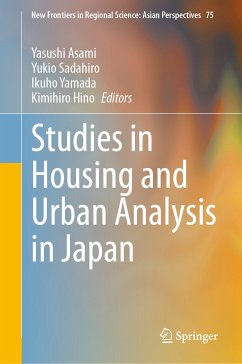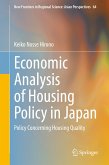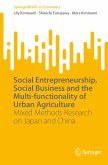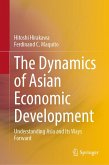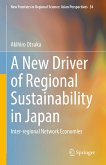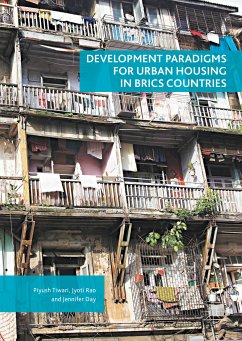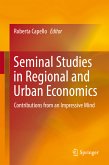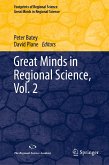The topics covered include economic analysis of the housing market, analyses of residential environment and human behaviour/psychology, analyses related to urban policies such as intermunicipal cooperation, teleworking and solar photovoltaics installation, spatial analyses of urban entities and effective visualization.
Housing and urban analysis has developed using theory and methods in the fields of economics, regional science, geography, statistics, spatial psychology and urban sociology. Even though the methods of analysis differ from chapter to chapter, the ultimate goal of the research is the same. Namely, the target of the research is a better understanding of urban phenomena and effective improvement of urban space and society. The academic contributions in this collection of work are helpful for academics, practitioners and policy makers not only in Japan but also in other Asian countries.
Dieser Download kann aus rechtlichen Gründen nur mit Rechnungsadresse in A, B, BG, CY, CZ, D, DK, EW, E, FIN, F, GR, HR, H, IRL, I, LT, L, LR, M, NL, PL, P, R, S, SLO, SK ausgeliefert werden.

